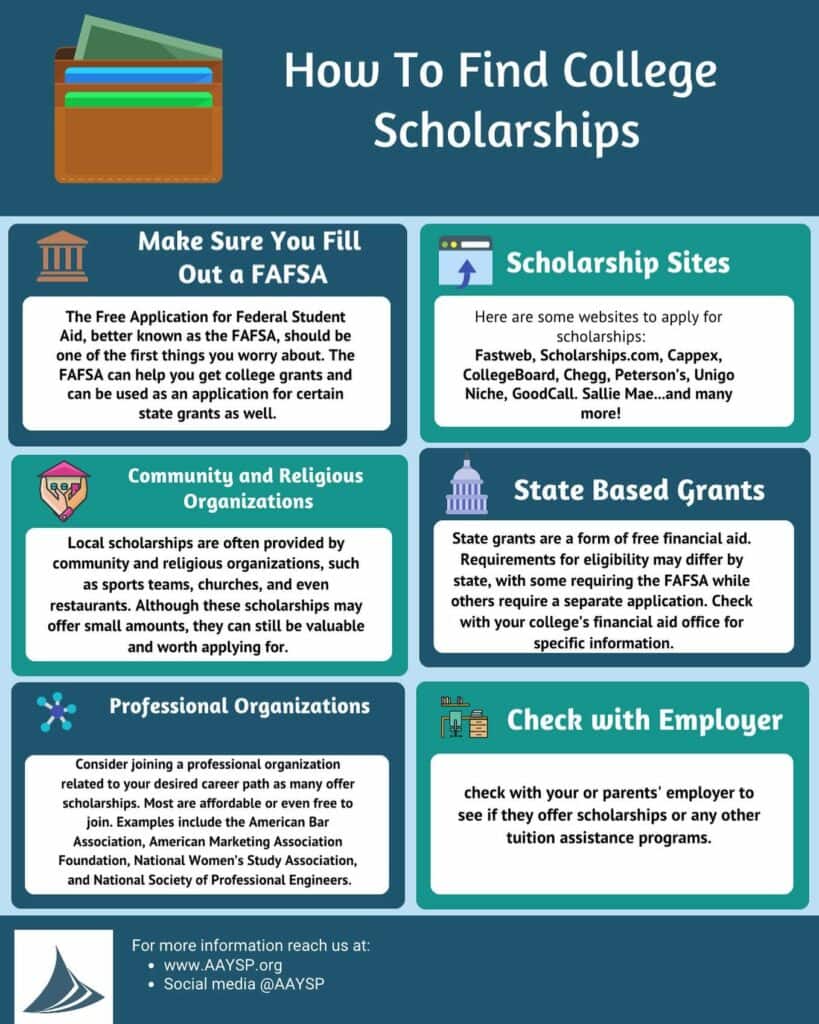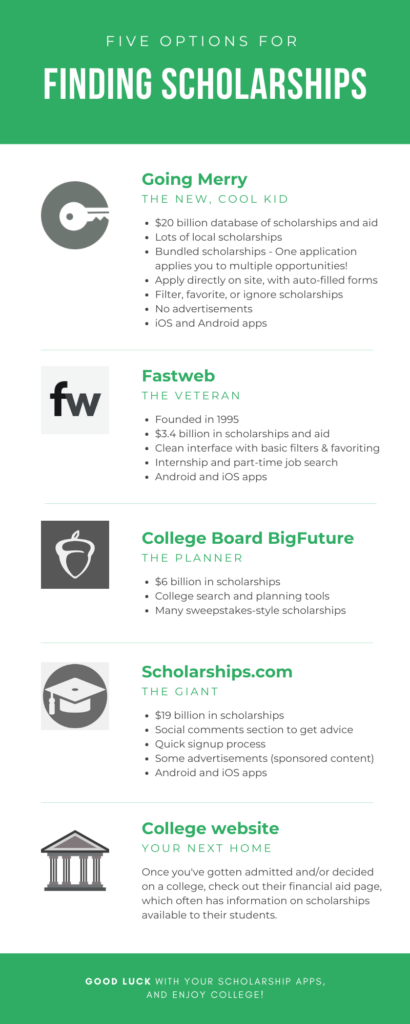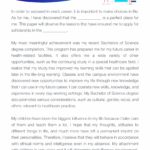My Scholarship Quest: The Honest Guide to Finding Funding for Your Dreams (A Beginner’s Journey)
I remember staring at my computer screen, the university’s tuition fees glaring back at me like a giant, impossible number. My heart sank. How was I, a regular kid with a big dream but not-so-big bank account, ever going to afford this? That’s when the word "scholarship" started bouncing around in my head. At first, it sounded like something only for straight-A students or sports heroes. But as I dug deeper, I learned it was something for me, too.
This isn’t a fairy tale where money magically appeared. My journey to finding scholarships was a real grind, full of dead ends, confusing forms, and moments of wanting to just give up. But it was also incredibly rewarding. And if I can do it, so can you. Consider this my honest account, a roadmap from someone who was once completely lost in the world of financial aid.
The "Aha!" Moment: Why Scholarships Are Your Best Friend
Before we dive into the "how-to," let’s talk about the "why." Scholarships are, simply put, free money for your education. You don’t pay it back. Ever. This isn’t a loan. It’s an award given to you based on various things: your grades, your interests, your background, your community involvement, or even just random quirks like being left-handed (yes, really!).
When I first understood this, it was like a light switch flipped. This wasn’t just for the top 1% of students; it was a way for anyone to lessen the burden of college costs. And that’s a pretty powerful idea.
Where My Scholarship Hunt Began: Knowing Where to Look
One of the biggest hurdles was figuring out where to even begin looking. It felt like searching for a needle in a haystack, but with no magnet. Here’s where I started, and where I recommend you start too:
- Your University’s Financial Aid Office: This should be your absolute first stop. Many universities have their own scholarships specifically for their students. They often have dedicated staff who know the ins and outs of local and institutional funding. I made an appointment and just asked, "Where do I even begin?" They were a huge help.
- Big Online Scholarship Search Engines: These are like Google for scholarships. You create a profile, input your information (grades, interests, major, background), and they match you with scholarships. I spent hours on sites like Fastweb, Niche, and the College Board’s scholarship search. Be prepared: you’ll get a lot of matches, many of which won’t be a perfect fit. It’s a filtering process.
- Local Organizations and Community Groups: This was a goldmine I almost missed! Think about places like:
- Your local Rotary Club, Lions Club, or Kiwanis Club.
- Community foundations in your town or city.
- Local businesses (banks, hospitals, big companies).
- Your high school guidance counselor (they often have lists of local awards).
These scholarships might be smaller in amount, but they’re often less competitive because fewer people apply. A bunch of small scholarships can add up to a significant amount!
- Organizations Related to Your Interests or Future Major: Are you passionate about environmental science? Look for environmental groups. Are you planning to study nursing? Check nursing associations. These "niche" scholarships often have very specific requirements, which means a smaller applicant pool and a better chance for you.
- Your Parents’ Employers or Unions: Many companies and labor unions offer scholarships to the children of their employees. It’s worth asking if this is something available.
Getting Your "Application Arsenal" Ready: What You’ll Need
Once you start finding scholarships, you’ll notice a pattern in what they ask for. Getting these documents and pieces of information ready before you start applying will save you a ton of stress. Think of it as building your "application toolkit."
- Academic Transcripts: You’ll need official records of your grades from high school and any college courses you’ve taken. Order these early! It can take time for schools to send them.
- Essays and Personal Statements: This is where you tell your story. Many scholarships ask for an essay about your goals, your experiences, or why you deserve the money. Start brainstorming ideas early.
- Letters of Recommendation: Most scholarships want to hear from people who know you well, like teachers, counselors, employers, or community leaders. Ask them well in advance, provide them with your resume and a list of your achievements, and remind them of the deadline.
- Resume or Activity List: A simple list of your extracurricular activities, volunteer work, jobs, and achievements. Keep it updated!
- Financial Information: Some scholarships are "need-based," meaning they consider your family’s income. You might need to provide information from your FAFSA (Free Application for Federal Student Aid) or tax returns.
Crafting Your Story: The Heart of Your Application
For me, the essays were the hardest part, but also the most important. This is your chance to stand out from a pile of applications. It’s not just about good grades; it’s about showing who you are.
- Be Authentic: Don’t try to be someone you’re not. Share your real experiences, your true passions, and what drives you.
- Answer the Prompt: Read the essay question carefully. It sounds obvious, but sometimes we get so caught up in what we want to say that we forget to address what they asked.
- Tell a Story: Instead of just listing your achievements, weave them into a narrative. Did you overcome a challenge? Did a particular experience shape your goals? Make it engaging.
- Proofread, Proofread, Proofread: A simple typo can make you look careless. Read your essay aloud. Ask a trusted friend, teacher, or parent to read it too. Fresh eyes catch mistakes.
And those letters of recommendation? Choose people who genuinely know you and can speak to your strengths, work ethic, and character. A generic letter from someone who barely knows you won’t help much.
The Art of Applying: More Than Just Clicking "Submit"
Once you have your toolkit ready and your essays polished, it’s time to apply. This is where persistence comes in.
- Read All Instructions Carefully: Every scholarship is different. Pay attention to word limits for essays, specific formatting requirements, and what documents they need.
- Keep Everything Organized: I created a spreadsheet with scholarship names, deadlines, requirements, and my application status. This saved my sanity.
- Submit On Time (or Early!): Deadlines are firm. Don’t wait until the last minute. Technical glitches happen!
- Tailor Each Application: While you can reuse parts of essays, try to customize each application to fit the specific scholarship. Show them you understand what they’re looking for. A generic essay might not resonate.
I applied for dozens of scholarships. I mean, dozens. Some were for $500, some for $10,000. Most I didn’t get. But the few I did get? They made all the difference. It’s a numbers game, but also a quality game. Don’t just apply for everything; apply for the ones where you genuinely fit the criteria and can submit a strong application.
My Bumps in the Road: Common Mistakes I Made (So You Don’t Have To!)
My journey wasn’t perfect. I stumbled quite a bit. Learning from my mistakes might help you avoid them:
- Missing Deadlines: Oh, the agony! I missed a couple of promising ones because I didn’t organize my calendar well enough. Set reminders!
- Not Proofreading Enough: I once submitted an essay with a silly spelling error. I still cringe thinking about it. Get multiple eyes on your work.
- Giving Up Too Soon: There were weeks when I got nothing but rejection emails. It’s disheartening. But I learned to take a break, then come back to it. Every "no" brings you closer to a "yes."
- Not Asking for Help: I tried to do everything myself at first. Once I started asking my high school counselor, teachers, and even my parents for help, things got much smoother.
- Not Tailoring Applications: Early on, I just copied and pasted essays. It rarely worked. Taking the time to adjust my writing for each scholarship made a big difference.
Staying Sane (and Motivated!) During the Scholarship Grind
The scholarship search can feel like a part-time job. It’s easy to get overwhelmed or burnt out. Here’s what helped me stay focused:
- Break It Down: Instead of looking at the whole mountain of applications, break it into smaller steps: "Today I’ll find 5 scholarships." "Tomorrow I’ll draft an essay."
- Celebrate Small Wins: Found a perfect scholarship? Great! Finished an essay? Awesome! Acknowledge your progress.
- Take Breaks: Step away from the computer. Go for a walk. Do something fun. A fresh mind works better.
- Don’t Compare: It’s tempting to compare your progress to others. Don’t. Your journey is your own. Focus on what you can do.
- Remember Your "Why": On tough days, I’d picture myself walking onto campus, pursuing my dreams. That vision kept me going.
Your Journey Starts Now!
Finding scholarships isn’t a secret. It’s about being organized, persistent, and putting your best self forward. It’s about knowing where to look and taking the time to present your story well. It’s definitely not easy, but it is absolutely possible.
My scholarship quest taught me so much more than just how to find money. It taught me about resilience, about telling my story, and about the power of asking for what you need.
So, take a deep breath. The money is out there. Start your quest today. Your future self will thank you for every single application you send. Good luck!



